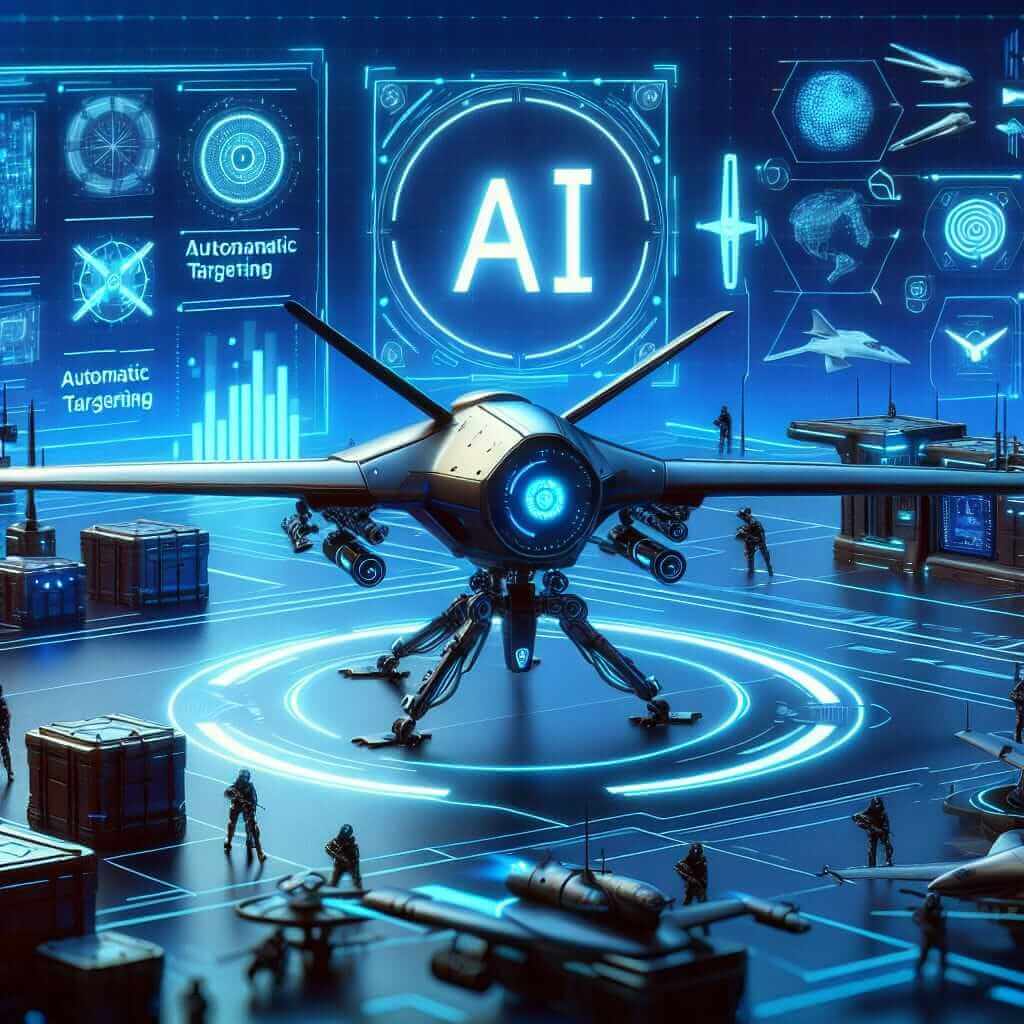The IELTS Reading section is a crucial component of the IELTS test, requiring candidates to comprehend and analyze different types of texts. One contemporary and significant topic that often appears in IELTS Reading tests is the implications of AI in autonomous weapons. Given the rapid advancements in technology, this topic has been increasingly relevant. Examining past IELTS Reading topics, it’s clear that such engaging and current issues are frequently revisited, making it essential for students to be well-prepared.
Understanding the implications of AI in autonomous weapons provides a dual benefit: it enhances general knowledge about a pressing global issue and equips candidates with the vocabulary and comprehension skills required for the IELTS exam. In this article, we will provide an exemplary IELTS Reading task designed to help candidates practice, including multiple questions and detailed answer keys.
Practice Test: IELTS Reading on “Implications of AI in Autonomous Weapons”
Passage
Implications of AI in Autonomous Weapons
Artificial Intelligence (AI) has brought significant advancements in various fields, including defense. Autonomous weapons, often referred to as “killer robots,” are weapon systems that can select and engage targets without human intervention. The use of AI in such weapons raises several ethical, legal, and security concerns.
One major implication of AI in autonomous weapons is the potential for reduced human accountability. In traditional warfare, human operators are responsible for targeting decisions, and thus, accountability is maintained. However, with AI, the decision-making process is automated, potentially diminishing human oversight and increasing the risk of unlawful or unethical actions during conflicts.
Moreover, autonomous weapons could alter the nature of warfare significantly. Nations might engage in conflicts more readily, knowing that their human soldiers are not at immediate risk. This could lead to the escalation of military engagements and an increase in the frequency of warfare. Additionally, the reduced need for human manpower could allow even smaller nations to develop powerful military capabilities, potentially destabilizing global power balances.
Another critical concern is the potential for AI errors. AI systems, while advanced, are not infallible. Misidentification of targets or the presence of biases in programming could lead to unintended casualties or collateral damage. In scenarios where seconds count, an AI error could be catastrophic, leading to significant loss of life and property.
Legal implications also come into play. Current international laws and treaties on warfare may not adequately cover the use of autonomous weapons. This legal gray area poses challenges for accountability and compliance with humanitarian laws. The lack of specific regulations can lead to misuse or unintended escalation, making the need for updated legal frameworks evident.
Lastly, the ethical implications cannot be ignored. The delegation of life-and-death decisions to machines raises profound ethical questions. Is it morally acceptable to allow a machine to take a human life? This question is at the core of the debate and highlights the need for rigorous ethical examinations and regulations.
In conclusion, while AI in autonomous weapons offers strategic advantages, it also presents significant ethical, legal, and security challenges. It is essential for global leaders, policymakers, and the international community to address these issues proactively to ensure responsible and secure use of this technology.
Questions
Multiple Choice
-
What is one major implication of AI in autonomous weapons?
a. Increased human intervention in wars
b. Reduced human accountability
c. Enhanced manual targeting
d. Decreased military engagements -
How might autonomous weapons affect the frequency of warfare?
a. Decrease it due to higher costs
b. Have no impact
c. Increase it due to reduced human risk
d. Regulate it based on international law
Sentence Completion
- AI errors in autonomous weapons could lead to __.
- The ethical debate surrounding autonomous weapons focuses on __.
True/False/Not Given
- Legal frameworks for autonomous weapons are currently comprehensive and adequate.
- Smaller nations might develop stronger military capabilities due to AI in autonomous weapons.
Answer Key
Multiple Choice
- b. Reduced human accountability – The text mentions that AI diminishes human oversight, potentially leading to accountability issues.
- c. Increase it due to reduced human risk – The text suggests that nations might engage in conflicts more readily if human soldiers are not at risk.
Sentence Completion
- AI errors in autonomous weapons could lead to unintended casualties or collateral damage.
- The ethical debate surrounding autonomous weapons focuses on whether it is morally acceptable to allow a machine to take a human life.
True/False/Not Given
- False – The passage states that current international laws and treaties may not adequately cover autonomous weapons.
- True – The passage mentions that smaller nations could develop powerful military capabilities due to reduced need for human manpower.
Lessons Learned
Common Mistakes
- Misunderstanding the passage: Pay close attention to the details provided in the text to avoid drawing incorrect conclusions.
- Vocabulary comprehension: Ensure to understand key terms and their contexts.
- Time management: Allocate time efficiently to both reading and answering questions.
Vocabulary
-
Autonomous (adj.) /ɔːˈtɒnəməs/
- Definition: self-governing; independent
- Example: Autonomous vehicles can navigate without human intervention.
-
Collateral (adj.) /kəˈlætərəl/
- Definition: additional but subordinate; secondary
- Example: Collateral damage is often a consequence of modern warfare.
Grammar Points
-
Relative Clauses: Use relative clauses to add information about a noun.
- Example: “AI in autonomous weapons, which can engage targets without human intervention, raises ethical concerns.”
-
Modal Verbs: Use modal verbs to express possibility, ability, or obligation.
- Example: “Autonomous weapons could alter the nature of warfare.”
Tips for High Scores in IELTS Reading
- Practice Regularly: Continuously practice with diverse readings to improve speed and comprehension.
- Enhance Vocabulary: Build a strong vocabulary to understand texts across various topics.
- Develop Skimming and Scanning Skills: Quickly identify key information to answer questions efficiently.
- Understand Question Types: Familiarize yourself with different IELTS Reading question formats to accurately address each one.

By adhering to these guidelines, preparing pertinent vocabulary, and practicing with realistic examples, candidates can significantly enhance their reading comprehension and overall performance in the IELTS Reading section.